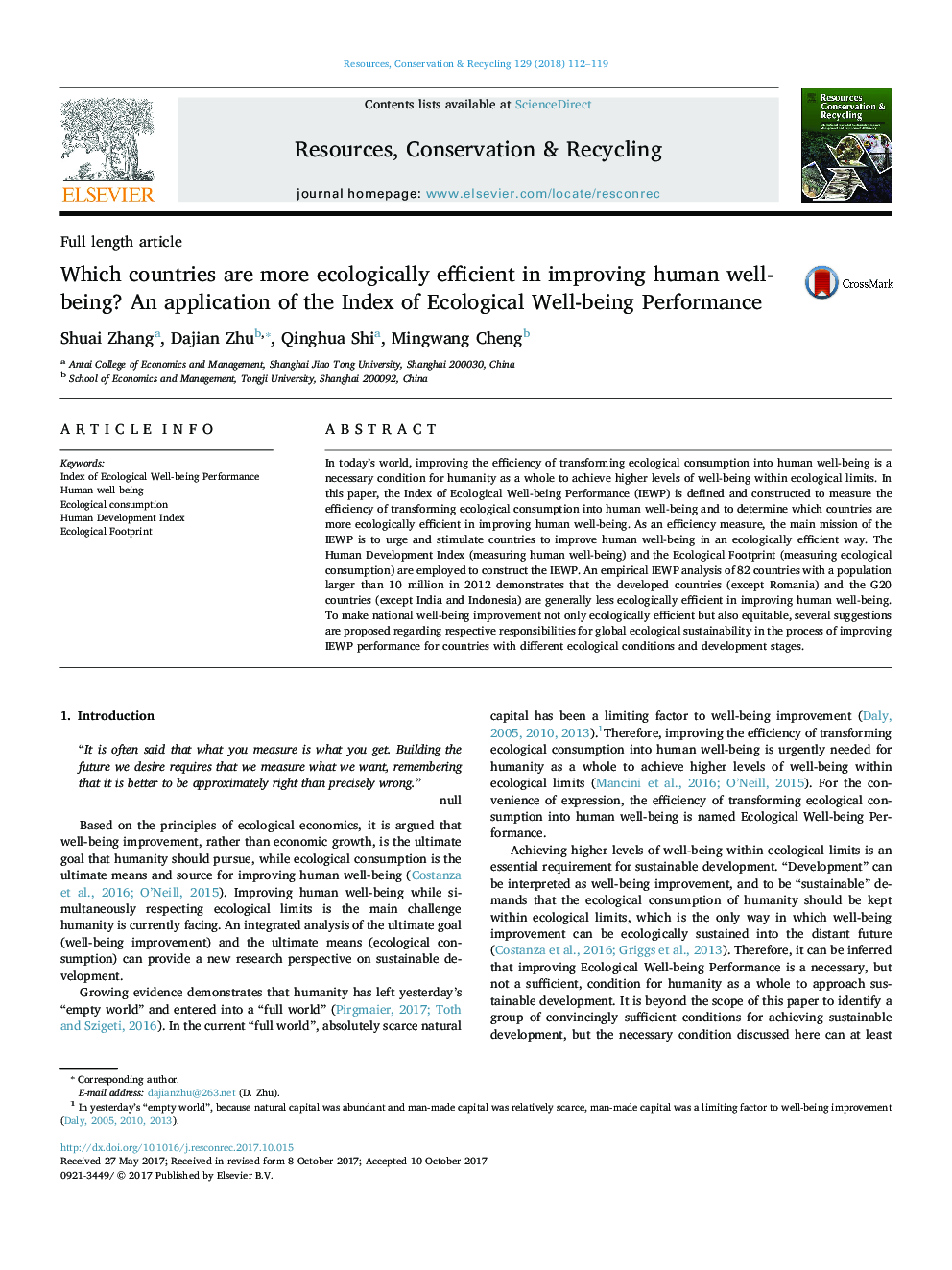| Article ID | Journal | Published Year | Pages | File Type |
|---|---|---|---|---|
| 7494499 | Resources, Conservation and Recycling | 2018 | 8 Pages |
Abstract
In today's world, improving the efficiency of transforming ecological consumption into human well-being is a necessary condition for humanity as a whole to achieve higher levels of well-being within ecological limits. In this paper, the Index of Ecological Well-being Performance (IEWP) is defined and constructed to measure the efficiency of transforming ecological consumption into human well-being and to determine which countries are more ecologically efficient in improving human well-being. As an efficiency measure, the main mission of the IEWP is to urge and stimulate countries to improve human well-being in an ecologically efficient way. The Human Development Index (measuring human well-being) and the Ecological Footprint (measuring ecological consumption) are employed to construct the IEWP. An empirical IEWP analysis of 82 countries with a population larger than 10 million in 2012 demonstrates that the developed countries (except Romania) and the G20 countries (except India and Indonesia) are generally less ecologically efficient in improving human well-being. To make national well-being improvement not only ecologically efficient but also equitable, several suggestions are proposed regarding respective responsibilities for global ecological sustainability in the process of improving IEWP performance for countries with different ecological conditions and development stages.
Related Topics
Physical Sciences and Engineering
Energy
Renewable Energy, Sustainability and the Environment
Authors
Shuai Zhang, Dajian Zhu, Qinghua Shi, Mingwang Cheng,
